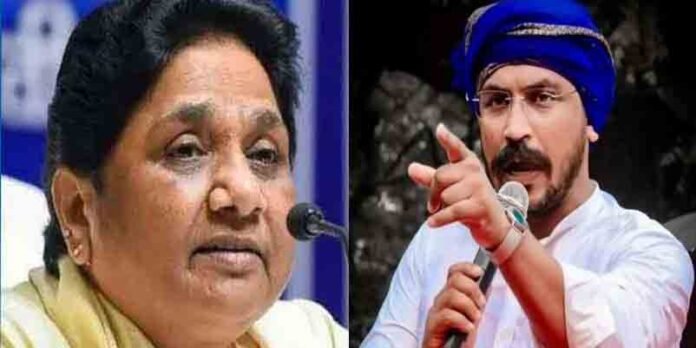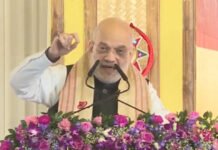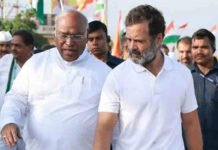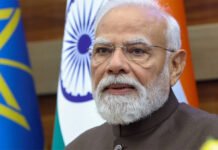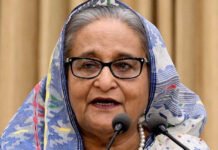The political landscape in Uttar Pradesh is heating up as the state prepares for by-elections on ten assembly seats. These elections are not just a routine exercise; they have become a battleground for a critical demographic—Dalit voters. The Bahujan Samaj Party (BSP), led by Mayawati, and Chandrashekhar Azad’s Azad Samaj Party (Kanshi Ram) are set to face off, each aiming to secure this influential vote bank.
BSP’s Return to the Fray
The BSP, historically a dominant force in UP politics, is making a significant return in these by-elections. After a period of political dormancy, Mayawati is reasserting her presence. The party has announced candidates for key seats, signaling its readiness to regain lost ground. Notably, Mayawati has fielded Ram Gopal Kori from Milkipur and a close ally from Meerapur, strategically positioning her party to attract Dalit voters.
Chandrashekhar Azad’s Rising Influence
On the other side, Chandrashekhar Azad, the dynamic leader of the Azad Samaj Party, is making waves in UP’s political waters. After his party’s notable performance in the Lok Sabha elections, Azad is now eyeing the assembly seats. The Azad Samaj Party has declared candidates for three crucial seats: Chaudhary Satpal for Ghaziabad Sadar, Zahid Hasan for Meerapur, and Dheeraj Maurya for Majhawan. The party’s state president, Sunil Kumar Chittor, has assured that candidates for the remaining seven seats will be announced soon, underscoring their preparedness and ambition.
Dividing the Dalit Vote: A Strategic Move?
The real battle in these by-elections is for the Dalit vote, a constituency that both the BSP and the Azad Samaj Party claim to represent. Mayawati, with her established political machinery, and Azad, with his fresh appeal and grassroots connections, are both vying to win over this critical segment of voters. The division of the Dalit vote could significantly impact the outcome, not just in these by-elections but also in setting the tone for future state and national elections.
Historical Context: Repeating the Past?
The contest in Milkipur is particularly interesting. Ram Gopal Kori, who is contesting again under the BSP banner, previously ran in 2017, finishing third. This time, with the added pressure from Azad’s party, the dynamics could shift. The rivalry between the BSP and the Azad Samaj Party is not just about the immediate electoral stakes; it’s about shaping the future political narrative in UP, especially within the Dalit community.
The Suspense Over Poll Dates
Adding to the tension is the uncertainty over the election dates. The Election Commission has yet to announce when the by-elections will take place, leaving parties and candidates in a state of suspense. Out of the ten vacant seats, five were held by the Samajwadi Party (SP), while the BJP controlled four, including its ally Rashtriya Lok Dal (RLD) in Meerapur. The upcoming elections will test whether these seats will remain with the incumbents or shift under the influence of BSP or Azad’s new political force.
Conclusion: A Defining Moment for UP Politics
These by-elections in Uttar Pradesh are more than just a test of political strength; they are a litmus test for the influence of Mayawati and Chandrashekhar Azad within the Dalit community. The outcome will not only determine who controls these ten assembly seats but will also provide insights into the shifting allegiances and future political strategies in one of India’s most crucial states. As the two leaders prepare to battle it out, the eyes of the nation are on UP, waiting to see who will emerge victorious in this high-stakes political game.

